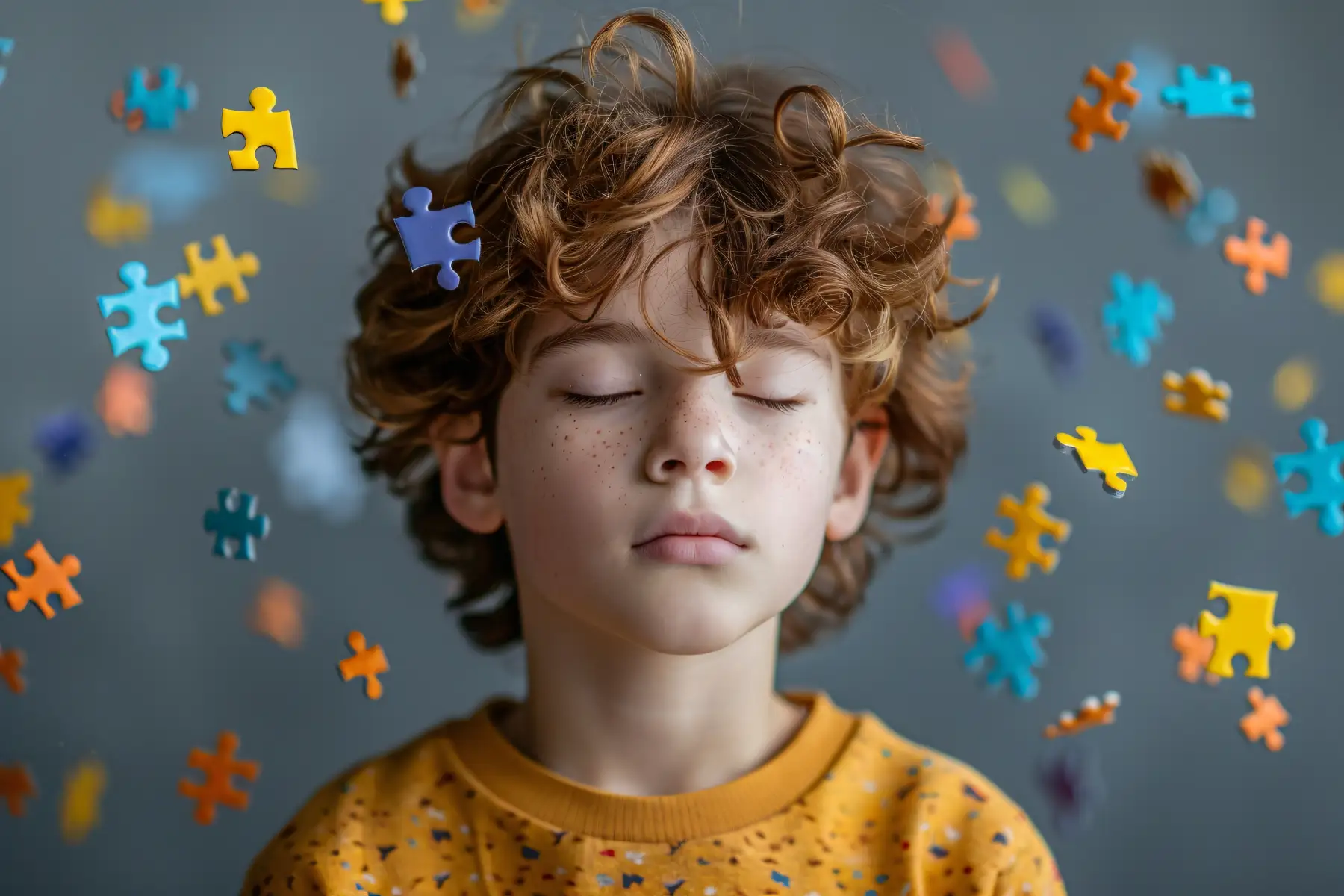Every child is unique, with their own way of thinking, learning, and navigating the world. For neurodivergent children and teens—those with brain differences such as autism, ADHD, and dyslexia—this uniqueness often becomes a defining aspect of who they are. Recognising and embracing neurodivergence early in life is key to helping young people thrive academically, socially, and emotionally.
By raising awareness of neurodiversity, society can move toward creating environments where children and teens feel supported and valued for their abilities, rather than judged by their challenges. In this article, we’ll explore the importance of identifying neurodivergence in young people, understanding the signs of conditions like autism and ADHD, and the role that parents, schools, and therapy can play in supporting neurodivergent children.
At Pinnacle Therapy, we pride ourselves on helping families and young individuals navigate the challenges of neurodivergence while building a foundation for growth, confidence, and resilience.
What Is Neurodiversity?
Neurodiversity is a term that refers to the natural variation in human brain function and cognition. It celebrates differences in how individuals learn, think, and process the world rather than viewing neurodivergent conditions as deficits or problems that need fixing.
For children and teens, neurodivergence often comes with unique strengths—such as creativity, problem-solving abilities, or specialist knowledge—but can also present challenges, particularly when trying to navigate systems, like schools, that are often built for neurotypical learners.
Recognising Neurodivergence in Children and Teens
Neurodivergence often becomes noticeable during childhood, and early recognition can make a major difference in helping young people feel supported and understood. While every child is different, here are some of the most common conditions associated with neurodiversity and the traits parents and teachers should look out for:
1. Autism Spectrum Disorder (ASD)
Autism Spectrum Disorder, or autism, is a developmental condition that affects how children perceive and interact with the world.
Early Signs of Autism in Children:
- Difficulty with social interactions, such as struggles with eye contact or interpreting body language.
- Repetitive behaviours or reliance on routines.
- Highly focused and specific interests.
- Sensory differences, such as sensitivity to noise, touch, or lights.
Autistic children often have exceptional attention to detail, unique ways of thinking, and outstanding abilities in areas such as memory, mathematics, or the arts.
2. Attention Deficit Hyperactivity Disorder (ADHD)
ADHD is one of the most common neurodivergent conditions in children, affecting focus, attention, and impulse control.
Common Signs of ADHD in Children or Teens:
- Trouble concentrating and completing tasks, especially those that feel unengaging.
- Impulsive behaviours or acting without thinking.
- Restlessness or high energy levels, sometimes characterised by difficulty sitting still.
- Forgetting instructions or losing belongings.
While ADHD can make traditional learning environments challenging, children with ADHD often thrive in dynamic, high-energy, or creative contexts.
3. Dyslexia
Dyslexia is a learning difference that primarily affects reading, writing, and spelling skills but does not impact intelligence.
Traits of Dyslexia in Young People:
- Difficulty recognising letters or sounds.
- Confusion when reading or mixing up the order of letters.
- Strong verbal communication skills but struggles with written tasks.
Children with dyslexia often excel in areas such as oral communication, creativity, or hands-on learning.
The Role of Parents in Supporting Neurodivergent Children
Parents play a crucial role in recognising and nurturing the strengths of their neurodivergent children. If your child exhibits signs of neurodivergence, here’s how you can begin supporting them:
1. Seek Early Diagnosis and Support
Early diagnosis can help ensure that children get the resources and support they need to thrive. For example:
- A formal autism diagnosis can lead to accommodations at school, such as sensory-friendly learning spaces or social interaction support.
- An ADHD diagnosis can offer access to tailored teaching strategies, lifestyle adjustments, or therapies designed to support focus and self-regulation.
2. Create a Nurturing Environment
At home, create a space where children feel safe expressing themselves without fear of judgement. Encourage their unique interests and strengths, and be patient with behaviours that stem from their neurodivergence.
3. Advocate for Your Child
Many neurodivergent children require adjustments at school or in extracurricular activities. This could include requesting extra time for assignments, visual aids, or reduced sensory stimulation. As a parent, your advocacy ensures that your child has the best chance to succeed.
4. Talk Openly About Neurodiversity
Helping children normalise their neurodivergence by talking openly and positively about it can reduce feelings of shame or “being different.” Encourage them to see their traits as strengths that add value to the world.
The Importance of Schools in Recognising Neurodivergence
Inclusive education is critical for neurodivergent children and teens. Schools should ensure that policies and teaching strategies meet the needs of all learners.
Here’s how schools can support neurodivergent students:
1. Providing Tailored Support Plans
Individual support plans (such as Education, Health, and Care Plans in the UK) help schools set tailored goals for neurodivergent students while providing accommodations like one-on-one support or extra exam time.
2. Building Teacher Awareness
Training teachers to identify and understand neurodiverse behaviours ensures that children are met with patience and empathy rather than frustration or criticism.
3. Creating Sensory-Friendly Spaces
Many neurodivergent students benefit from sensory-friendly environments, such as low-stimulation study areas or “quiet rooms” where they can relax when overwhelmed.
4. Encouraging Inclusion Among Peers
Schools should promote diversity and inclusion by encouraging students to embrace differences in their peers. Programs that teach empathy and understanding can foster an accepting atmosphere.
How Therapy Supports Neurodivergent Children and Teens
Therapy plays a vital role in helping neurodivergent children and teens manage challenges, build confidence, and thrive. At Pinnacle Therapy, we provide compassionate and tailored services to support children and their families.
Benefits of Therapy for Neurodivergent Young People:
- Building Confidence and Self-Worth: Therapists encourage neurodivergent children to recognise their skills and unique qualities, helping them build self-esteem and pride in their identity.
- Helping Manage Anxiety or Stress: Therapy provides coping techniques to manage anxiety caused by sensory overload, bullying, or pressure to conform.
- Improving Communication and Social Skills: Therapists help children develop tools for navigating social interactions, such as interpreting body language or identifying emotions.
- Supporting Families: Family therapy helps parents and siblings understand neurodiverse behaviours, improving family dynamics while promoting a supportive home environment.
How Pinnacle Therapy Can Help
At Pinnacle Therapy, we specialise in delivering personalised support to neurodivergent children, teens, and their families. Whether it’s managing school challenges, building emotional resilience, or embracing neurodiversity, our experienced therapists offer tailored guidance for every individual’s unique needs.
Our services include:
- Therapy for ADHD and Autism: Using evidence-based strategies to help children navigate focus, emotional regulation, and social interactions.
- Counselling for Families: Helping families develop tools for supporting neurodivergent children and strengthening relationships.
- Workshops for Teens: Focused on building self-esteem and communication skills for young people preparing for more independence.
Final Thoughts
Raising awareness of neurodiversity in children and teens is essential for creating a world that celebrates differences and provides opportunities for all young people to thrive. By identifying and embracing neurodivergence early, parents, schools, and communities can play a crucial role in helping children reach their full potential.
Therapy is a crucial resource in this journey, offering support to the children and families navigating the unique challenges of neurodiversity. At Pinnacle Therapy, we’re committed to empowering neurodivergent young people by providing the tools, strategies, and confidence they need to succeed.
Contact us at www.pinnacletherapy.co.uk today to learn more about how we can support your child and family on the path to growth and emotional well-being.







